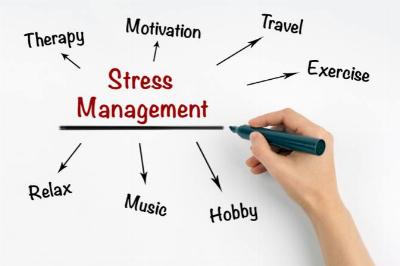
- Published on 08-Jun-2023
- 0 Likes
- 0 Comments
- 606 Times Read
Hypertension, or high blood pressure, is a prevalent health condition that can lead to serious complications if left unmanaged. Thankfully, there are effective strategies to help control and lower blood pressure.
In this blog, we will discuss practical tips and lifestyle changes that can aid in managing hypertension and promoting overall cardiovascular health. 





ADOPT A BALANCED DIET
A healthy and balanced diet plays a crucial role in managing hypertension. Emphasize the consumption of whole foods, including fruits, vegetables, whole grains, lean proteins, and low-fat dairy products. Limit your intake of sodium (salt) by avoiding processed foods, canned soups, and snacks high in sodium content. Instead, opt for fresh, homemade meals prepared with minimal salt or seasonings.
Incorporate potassium-rich foods like bananas, oranges, spinach, and sweet potatoes, as potassium helps counterbalance the effects of sodium. Consider following the Dietary Approaches to Stop Hypertension (DASH) eating plan, which is specifically designed to lower blood pressure.

MAINTAIN A HEALTHY WEIGHT
Maintaining a healthy weight is crucial for managing hypertension. Excess weight puts additional strain on the heart and blood vessels, leading to elevated blood pressure. Incorporate regular physical activity and aim to achieve and maintain a healthy body weight. Engage in at least 150 minutes of moderate-intensity aerobic exercise per week, such as brisk walking, cycling, or swimming. Combine it with strength training exercises to promote muscle development and increase metabolism.
Consult with a healthcare professional or registered dietitian to determine an appropriate weight loss plan tailored to your needs.

REDUCE SODIUM INTAKE
High sodium intake is strongly associated with elevated blood pressure. Limiting your sodium consumption can have a significant impact on managing hypertension. Read food labels carefully and choose low-sodium or sodium-free options when possible. Avoid adding salt to meals and opt for natural herbs and spices to enhance flavor.
Be mindful of hidden sources of sodium, such as condiments, sauces, and processed foods. Gradually reduce your sodium intake to allow your taste buds to adjust. Over time, you'll become more accustomed to lower-sodium foods, and your preference for salty flavors will diminish.

MANAGE STRESS
Chronic stress can contribute to hypertension and other cardiovascular problems. Adopting effective stress management techniques is crucial for managing blood pressure. Engage in stress-reducing activities such as meditation, deep breathing exercises, yoga, or engaging in hobbies you enjoy. Practice time management skills to prioritize activities and avoid excessive pressure.
Regular physical activity, adequate sleep, and maintaining a healthy work-life balance can also help manage stress levels. Consider seeking support from a therapist or counselor to develop effective coping strategies. By managing stress, you can lower blood pressure and improve overall well-being.

Conclusion Managing hypertension requires a comprehensive approach that encompasses lifestyle changes and healthy habits. By adopting a balanced diet, maintaining a healthy weight, reducing sodium intake, and effectively managing stress, you can promote better cardiovascular health and keep blood pressure under control.
Work closely with healthcare professionals to develop a personalized plan that suits your needs and ensures a healthier future.



0 Comments